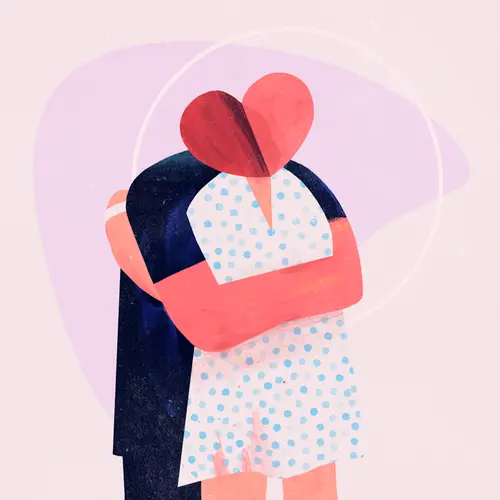When you have early-stage breast cancer, connecting with others who understand your journey can be a lifeline. Studies show that giving and receiving help through support groups can lower stress and anxiety related to your breast cancer diagnosis.
How Support Groups Can Help
A cancer diagnosis, and sometimes treatment, can cause feelings of grief, disbelief, shock, anger, and fear. Support groups provide interaction with others who have similar experiences. These connections can help you feel less alone as you process your emotions.
Support groups can help you:
- Lower your stress through connection with others
- Talk about and work through your feelings
- Have a greater sense of belonging
- Share experiences and find support for your practical challenges at home, work, or school
- Have a confidential, safe space to discuss things you might not feel free to talk about in other places
Support groups are also a valuable source of information and advice. You can share practical tips with each other, such as:
- What to expect during treatment
- How to manage different side effects
- How to find support services
- How to communicate with your medical team
- How to relate to family members
Types of Support Groups
Not all support groups have the same structure. You may want to try different models before finding the one that works for you. You might try:
Peer-led groups. These are run by people with breast cancer. Leaders are members of the groups they lead.
Professional-led support groups. A trained professional such as a counselor, social worker, or psychologist heads up the group and steers the conversation. They aren’t members of the groups they lead.
Informational support groups. In these, you may have speakers such as doctors and nurses who provide educational information. Usually, a professional facilitator, who isn’t a group member, runs them.
Where to Find Support
If you’re looking for an in-person group to join, start by talking to your doctor or a social worker. There may be support groups at the medical clinic you already attend. It can be especially helpful to connect with others dealing with early-stage breast cancer.
The CancerCare Breast Cancer Patient Support Group is led by an oncology social worker who provides emotional and practical support.
Here for the Girls is a member-based organization that supports young women with breast cancer.
Breast Cancer Support: All Ages All Stages is a private Facebook group run by Living Beyond Breast Cancer. This group offers support in all breast cancer stages – from newly diagnosed, to being treated, to years beyond treatment, or living with metastatic breast cancer.
Young Survival Coalition provides online support programs and resource guides for young women with breast cancer.
How to Choose the Right Group for You
As you search for a support network, consider these questions:
- What’s your goal: emotional support, information and education, or a combination of both?
- Do you prefer a group specific to early-stage breast cancer or for people the same age or race?
- How often and how long do you want to meet with your group?
- Do you want a professionally led group or a peer-to-peer group?
- Would you prefer an online group or one that meets in person?
Support Group Alternatives
If a group setting isn’t for you, there are other ways you can connect, such as one-on-one support.
The National Breast Cancer Foundation Patient Navigator Program connects you with a facility where a navigator helps you overcome barriers such as cost, fear, and misinformation surrounding your cancer.
Reach to Recovery is a website and app offered by the American Cancer Society. Through it, you create a profile and you’re matched with a trained volunteer who also has cancer. They’ll sync up with you based on your diagnosis and treatment options, so you can share experiences.
Helplines are another way you can get support and direction:
- After Breast Cancer Diagnosis (800-977-4121)
- American Cancer Society (800-227-2345)
- CancerCare (800-813-4673)
- SHARE: Self-help for Women with Breast or Ovarian Cancer (844-275-7427)
- Susan G. Komen for the Cure (877-465-6636)

